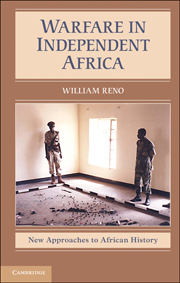3 - Majority Rule Rebels
Published online by Cambridge University Press: 05 June 2012
Summary
The rebels who fought white-dominated regimes for majority rule in Rhodesia (Zimbabwe), South West Africa (Namibia), and South Africa tried to present themselves as deserving international recognition. From the 1960s through the early 1990s international politics greatly influenced how these rebels presented their goals and strategies to their followers and the rest of the world. As in the case of the anti-colonial rebels, external supporters pressed rival rebel groups to show evidence of popular support in a particular country and to unify into a single organization, although often there was disagreement among these backers as to which rebel group was to be preferred. Rebel leaders knew that they had to convey an image of unity, through either agreement or superior performance on the battlefield, if they were to attract the money and diplomatic backing required to fight their wars. The link between socialist ideology and the organization of rebels and their strategies was evident too. Many majority rule rebels also sought rear bases and solidified their personal and operational ties to their anti-colonial brethren as those rebels came to power in the wake of the Portuguese withdrawal in 1974.
The regional politics of majority rule left its imprint on rebel organizations. Internal politics of the Zimbabwe African National Union (ZANU) and the Zimbabwe African People's Union (ZAPU) reflected the necessity for these movements to align their ideas with those of Tanzanian President Julius Nyerere and Zambian President Kenneth Kaunda to secure their backing.
- Type
- Chapter
- Information
- Warfare in Independent Africa , pp. 79 - 118Publisher: Cambridge University PressPrint publication year: 2011

